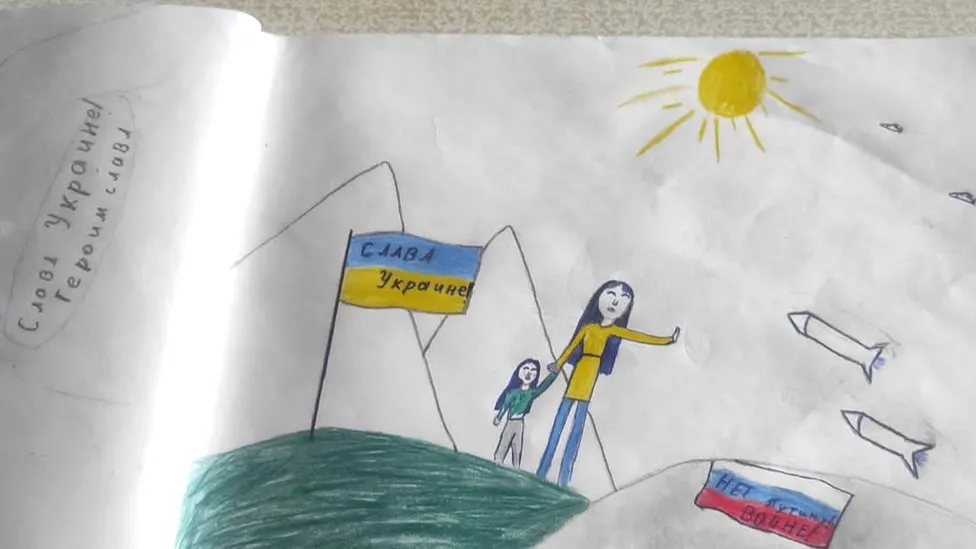You have probably heard — or could have reasonably guessed — that Russia has sharply clamped down on independent media, protests or any perceived dissent of the war. The crack down started years ago, but really ramped up last year, even driving a Nobel-winning media company to close shop and relocate out of the country. (Most independent Russian media now operates out of Latvia.)
Given all that, maybe this article from the BBC isn’t that much of a surprise: Ukraine war: How a Russian child’s drawing sparked a police investigation (bbc.com). I think that the real surprise for me was the extreme measures being taken here. It’s a good article to read, but in summary: A young girl draws an anti-war picture, the school calls the police, who fine her father, take her from her home, and now are prosecuting the father which could send him to prison for years. A child has an opinion! Stop it! Stamp it out! Punish anyone or anything tangentially related to this inappropriate thought!
Crushing dissent is the primary way an autocrat stays in power, but when even a kid can see the truth, the autocrat’s days are numbered. (But, of course, his true believers won’t go down without a fight.)
